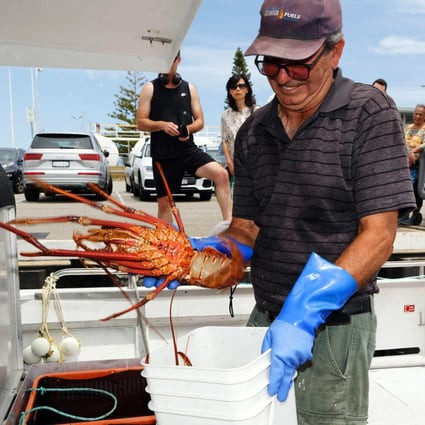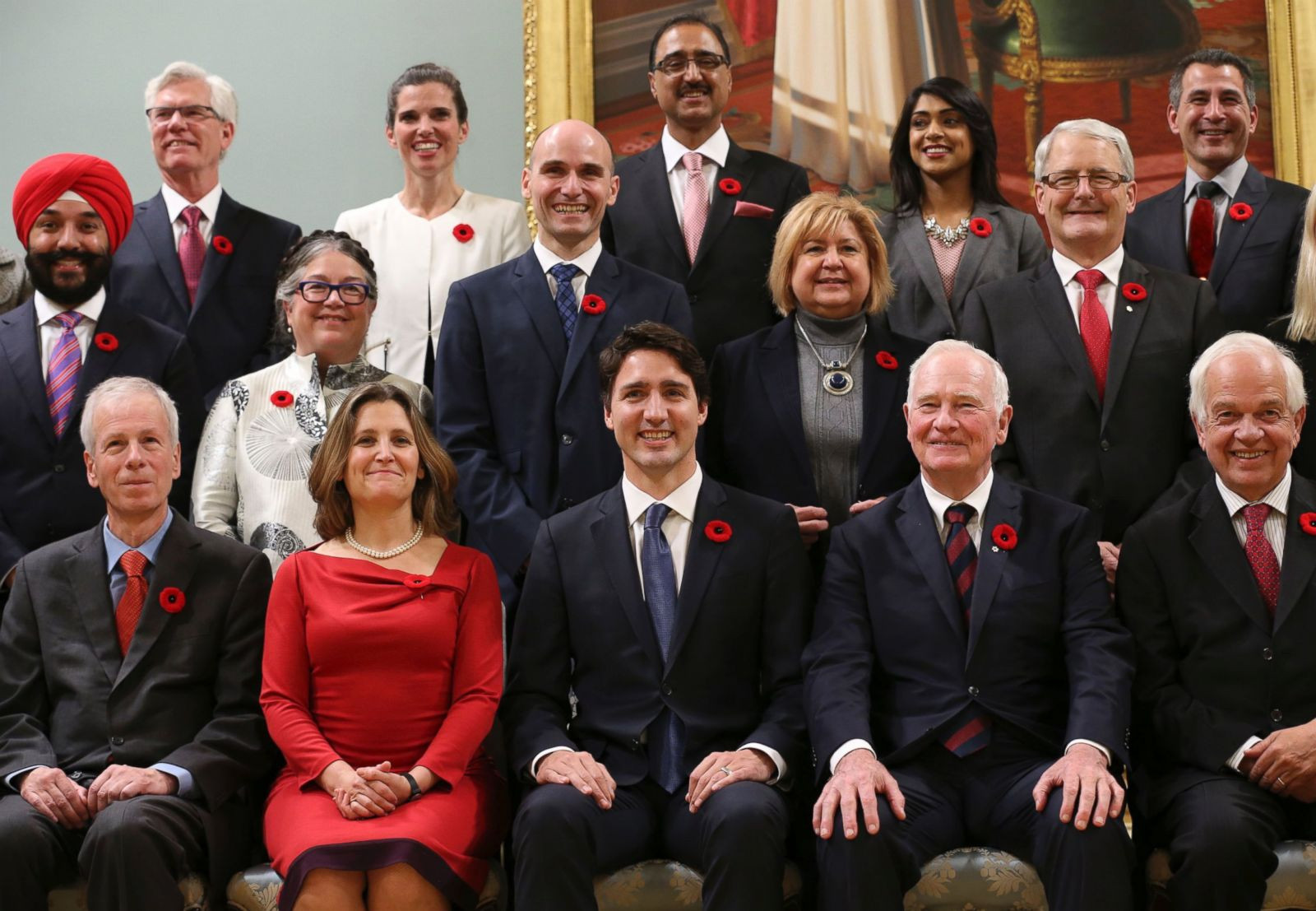The House stands adjourned, Afternoon Briefing is fully briefed, and the Senate is crawling to a close. It's time for the politicians to catch their planes and those of us who dwell permanently at Parliament House to take a deep breath until the next time the circus comes to town.
Thank you for joining us on the blog today. It had a bit of everything. We learned China would lift trade restrictions on Australian lobsters, saw legislation to prevent a repeat of Robodebt, and heard Richard Marles' chief of staff air claims about her experience in his office. And along the way there were Greek tragedies, embassy parties and a bit of Agro.
Anthony Albanese's announcement that bans on the trade of live lobsters with China would be lifted caught many by surprise. It didn't come with the 'forward sizzle' these sorts of announcements often do, and there are suggestions it was worked out between the two leaders in the room. It'll add some weight to the PM's argument that regular, low-key meetings with officials like Premier Li deliver results. He's continually rejected the idea of what he calls 'megaphone diplomacy'.
That said, at the same time as announcing the lobster decision, the PM referred to the slew of other issues still weighing on the China relationship. Issues like tensions in the South China Sea, or the detention of Yang Hengjun, will be much harder to resolve. But the meeting with Li was top of the PM's agenda in Vientiane - and he'll be pleased with how the trip has started.
More pics from Vientiane, where the PM has sat down in what appears to be a cafe with Canadian PM Justin Trudeau and New Zealand PM Christopher Luxon. Good of the proprietors to allow the leaders to bring their flags with them.
Afternoon Briefing's political panel for the day has a health flavour, with assistant health minister Ged Kearney and shadow health minister Anne Ruston. They've canvassed a range of issues, but the top item in their own portfolios is the effect of the government's boost to the bulk billing incentive. Ruston says bulk billing rates were much higher under the Coalition. Kearney says the statistics are complicated and notes the government's investment in bulk billing is greater than under the Coalition.
There's more agreement on the rock lobsters, where unlike her colleague Paul Fletcher Ruston is unequivocally pleased, especially for exporters in her state in South Australia. Fletcher says it is "clearly good news for the lobster sector," but also says it "means less lobster on our tables locally and paying more for it."
Coalition frontbencher Paul Fletcher has been voicing concerns for months about the allocation of $470 million each from the federal and Queensland governments to quantum computing company PsiQuantum. He joins the show to discuss new documents showing that Australia's chief scientist was initially (although not eventually) sceptical about the investment. Fletcher is unhappy with the process and says the government shouldn't have "bet it all on black" by investing so much in one company when the investment is necessarily speculative, since nobody has built a quantum computer yet. He says the government gave preferential treatment to PsiQuantum. "It's a dodgy process reverse engineered to cover up a captain's pick." "It does look very much as if an individual minister got dazzled by salespeople," he says, referring to science minister Ed Husic.
What does the minister think about her ex-colleague Fatima Payman choosing 'Australia's Voice' as the name for her new party, which frustrated many 'yes' campaigners? "I was very surprised... I'm sure there are many across the Australian community, who share those views [expressed by yes campaigners]," she says. But she adds she's "not too concerned... I'm just trying to get on with my job." She's speaking about the first anniversary of the failed Voice referendum. She acknowledges "deep hurt" among those who wanted a Voice. "I certainly reflect on the six million Australians who supported it and the incredible work of those who lobbied for the 'yes' vote in the affirmative, but, of course, we did not win." She's asked about the establishment of a new commissioner for First Nations children, set to start in the new year. "We see that the high rates of removal of First Nations children across the country is not decreasing and that is a real concern... We want to see this position as one that does tackle those areas specifically."
The ABC's national affairs reporter Melissa Clarke is again in the chair over on ABC News. Paul Fletcher will join her later in the program, as will minister for Indigenous Australians Malarndirri McCarthy.
Per the trade minister's office, Australian exporters lost billions from the China's lobster obstacle. The lobster trade to China was worth $700 million in 2019 alone, the last year before the impediment was imposed. "We inherited $20 billion worth of Chinese trade impediments when we came to government. With this announcement today, less than $500 million impediments remain."
Exports of Australian lobster to China will resume before the Lunar New Year, says the PM in Vientiane. We're told this was decided between the leaders in the room. Trade Minister Don Farrell didn't know it was coming. It's almost the last of the pandemic-era trade barriers to be lifted, although there are two Australian red meat processers still suspended by China. There were some signs of personal warmth between the PM and Chinese Premier Li Qiang, who called him an "old friend". And Albanese called the meeting "productive and important." But he also raised Australia's concern over China's launch of an intercontinental ballistic missile over the Pacific. "China put forward its perspective and I put forward Australia's... our position in private is the same as our position in public which is [that] international law must be respected."
Deep breaths. We're not sure how Courtney does this every day. Jake Evans departs with my thanks, and now it's my solemn duty to land this sitting week. Afternoon Briefing is our next main event with an exciting roster of guests to be revealed in due season.
Right off the back of his comments that relations have improved with Australia, Chinese premier Li Qiang has announced China will end its ban on Australian lobster imports. The lobster ban was the last major restriction in place from an era where diplomatic relations were in the deep freeze and several exports including wine, beef and barley had been banned by China. There are two meat processors China still has restrictions placed on. Those restrictions were widely interpreted as economic punishments.
Prime Minister Anthony Albanese has just met with Chinese Premier Li Qiang, who in opening remarks has described the PM as an "old friend". "It gives me great pleasure to meet you again. I feel very warm to meet an old friend, and I thank Mr prime minister and the Australian side for their warm hospitality," Li said. "I can feel clearly that people of both countries are genuinely supportive of the improvement of China-Australia relations. It also gives me greater confidence in sustaining our cooperation ... it is gratifying to know that over the past weeks and months, China-Australia relations have on the whole continued to move forward in a positive direction."
The decision to lift the ban marks a significant shift in the relationship between the two countries, which has been strained in recent years over a range of issues, including trade disputes and security concerns. The ban on Australian lobster imports, which was imposed in 2020, was seen as a major blow to the Australian seafood industry. The lifting of the ban is expected to boost the Australian economy and improve relations between the two countries.
The decision to lift the ban is being welcomed by Australian exporters, who have been struggling to sell their lobsters to China since the ban was imposed. The ban was widely seen as a retaliation for Australia's decision to call for an independent inquiry into the origins of the COVID-19 pandemic. The Chinese government denied that the ban was politically motivated, but many observers saw it as a clear attempt to punish Australia for its stance on the pandemic.
The lifting of the ban is a positive sign for the future of relations between Australia and China. However, it remains to be seen whether the two countries will be able to fully resolve their differences. There are still a number of outstanding issues between the two countries, including China's aggressive behavior in the South China Sea and its crackdown on democracy in Hong Kong.
It is important to note that the lifting of the ban does not necessarily mean that relations between Australia and China have returned to normal. The two countries still have significant differences on a range of issues, and it remains to be seen whether they will be able to overcome these differences. The ban on Australian lobster imports, which was imposed in 2020, was seen as a major blow to the Australian seafood industry, and its lifting is a positive development. However, the decision to lift the ban should not be seen as a sign that the two countries are now close allies. Australia and China have a complex relationship, and it is important to remain cautious about the future of their ties.
The lifting of the ban is a positive step, but it remains to be seen whether it will lead to a broader improvement in relations between the two countries. Only time will tell whether the two countries will be able to fully resolve their differences and move towards a more constructive relationship. The lifting of the ban is a positive development, but it is important to remember that it is only one small step in a long and complex relationship. The relationship between Australia and China is constantly evolving, and it is important to stay informed about the latest developments. The lifting of the ban is a positive sign, but it is important to maintain a realistic perspective on the relationship between the two countries. The future of the relationship between Australia and China remains uncertain, but the lifting of the ban is a positive sign. It is important to continue to monitor the relationship between the two countries and to be aware of the potential for both progress and setbacks. The lifting of the ban is a positive development, but it is important to remember that the relationship between Australia and China is a long and complex one, and that there are still many challenges ahead.

















